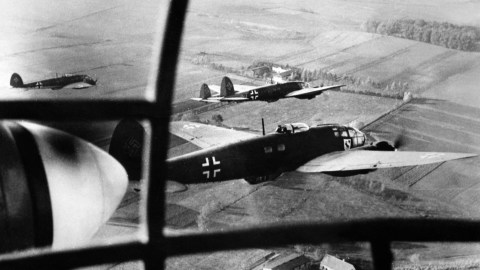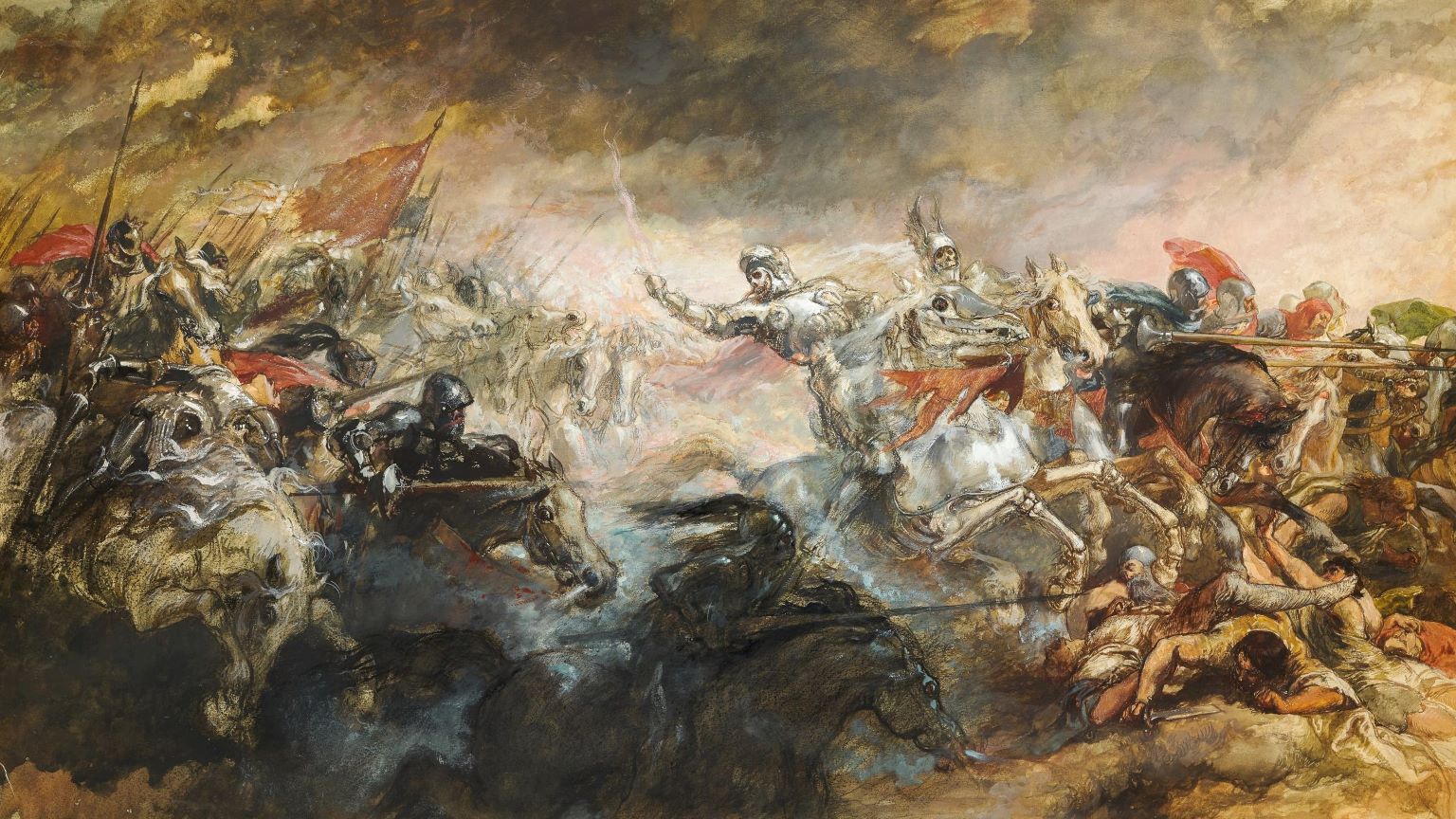Mathematical model shows how the Nazis could have won WWII’s Battle of Britain

Photo: Heinrich Hoffmann/ullstein bild via Getty Images
- The Battle of Britain is widely recognized as one of the most significant battles that occurred during World War II. It marked the first major victory of the Allied forces and shifted the tide of the war.
- Historians, however, have long debated the deciding factor in the British victory and German defeat.
- A new mathematical model took into account numerous alternative tactics that the German’s could have made and found that just two tweaks stood between them and victory over Britain.
Soon after the Nazis took control of France in June 1940 they began a military campaign against Britain. For three months, the Luftwaffe bombed targets in Britain, countered by the Royal Air Force (RAF). Their targets were sporadic: First, the Luftwaffe attacked ports and shipping centers, then RAF bases, then strategic infrastructure, and finally, civilians and politically significant sites. This military campaign was known as the Battle of Britain, which included the series of high-intensity night bombings known as the Blitz.
Defeating the RAF was crucial before the German army could launch a land invasion of Britain, but ultimately, the military campaign became too costly for the German forces to sustain. The planned invasion was called off, and the campaign against Britain shifted its focus to blockading the island nation’s access to the sea. This would become the German’s first major defeat in the war and form a crucial turning point that would define its remainder.
In part, the British victory was won by the German’s lack of preparation. Hitler never expected to need to invade Britain; after France fell, he expected Britain would recognize “her hopeless military situation” and agree to the favorable terms of surrender he had put forth. Historians have long debated what the Luftwaffe could have accomplished had the Germans developed a more comprehensive strategy.
Two strategic blunders
Now, historians and mathematicians from York St. John University have collaborated to produce a statistical model (docx download) capable of calculating what the likely outcomes of the Battle of Britain would have been had the circumstances been different.
Would the German war effort have fared better had they not bombed Britain at all? What if Hitler had begun his bombing campaign earlier, even by just a few weeks? What if they had focused their targets on RAF airfields for the entire course of the battle? Using a statistical technique called weighted bootstrapping, the researchers studied these and other alternatives.
“The weighted bootstrap technique allowed us to model alternative campaigns in which the Luftwaffe prolongs or contracts the different phases of the battle and varies its targets,” said co-author Dr. Jaime Wood in a statement. Based on the different strategic decisions that the German forces could have made, the researchers’ model enabled them to predict the likelihood that the events of a given day of fighting would or would not occur.
“The Luftwaffe would only have been able to make the necessary bases in France available to launch an air attack on Britain in June at the earliest, so our alternative campaign brings forward the air campaign by three weeks,” continued Wood. “We tested the impact of this and the other counterfactuals by varying the probabilities with which we choose individual days.”
Ultimately, two strategic tweaks shifted the odds significantly towards the Germans’ favor. Had the German forces started their campaign earlier in the year and had they consistently targeted RAF airfields, an Allied victory would have been extremely unlikely.
Say the odds of a British victory in the real-world Battle of Britain stood at 50-50 (there’s no real way of knowing what the actual odds are, so we’ll just have to select an arbitrary figure). If this were the case, changing the start date of the campaign and focusing only on airfields would have reduced British chances at victory to just 10 percent. Even if a British victory stood at 98 percent, these changes would have cut them down to just 34 percent.
A tool for understanding history
This technique, said co-author Niall Mackay, “demonstrates just how finely-balanced the outcomes of some of the biggest moments of history were. Even when we use the actual days’ events of the battle, make a small change of timing or emphasis to the arrangement of those days and things might have turned out very differently.”
The researchers also claimed that their technique could be applied to other uncertain historical events. “Weighted bootstrapping can provide a natural and intuitive tool for historians to investigate unrealized possibilities, informing historical controversies and debates,” said Mackay.
Using this technique, researchers can evaluate other what-ifs and gain insight into how differently influential events could have turned out if only the slightest things had changed. For now, at least, we can all be thankful that Hitler underestimated Britain’s grit.





